Generation Covid: Belfast

“We have more shared interests than differences today. We need to champion that shared struggle as young people in a world beyond pandemic.” THE FACE hits the streets of Northern Ireland to find out how Covid politicised young people.
Life
Words: Anna Cafolla
Photography: Vanessa Ifediora
On Saturday 26th February 2022, THE FACE hit the streets in four corners of the UK to talk to 14 – 23 year olds about how their lives have been impacted by the pandemic. Covering all the home nations – Sheffield in England, Belfast in Northern Ireland, Merthyr Tydfil in Wales and Helmsdale in Scotland – each report reveals a different facet of the challenges presented by Covid. Accompanied by a national survey of more than 300 people, these stories mark two years since the UK first went into lockdown on 23rd March 2020. And as you’ll find out, a lot has changed for the UK’s young people in that time.
Katie Connolly is on her lunch break in Belfast city centre, breaking down the evening ahead at Ulster Sports Club, an “old man bar” turned post-pandemic clubbing haven for amp-smacking local house and disco, Baby Guinness shots and fags shared underneath a giant “ULSTER SAYS YEO” mural. A profoundly different piece of wall art for the city.
A big Saturday night, then, but it needs to be.
“Hospitality needs our support now, you know,” Connolly explains with a wicked grin as she hides from the blustery weather, smoking on the benches outside Victoria Square, Belfast’s major shopping complex.
Pre-pandemic, the 22-year-old would come back from studying English in Glasgow for summers and Christmas, working as an assistant manager at Hollister in between. The long-term plan is still to pursue fashion journalism in London, but the pandemic brought her home for much of the end of her studies and into graduate life.
“We had to make the best of it,” she says, before ticking off the ways: “I didn’t have a proper graduation. My friends and I rented robes and had professional photos taken. My friendship circle got smaller but deeper. University exclusively on Zoom was so hard – I’d go from calm to panic central.”
Northern Ireland’s youth, determined to overcome the conflict and its enduring political and social tremors, have long tended to abscond. Local think tank Pivotal highlights that between 2018 and ’19, 17,500 students chose to study in Great Britain, the ongoing “brain drain” that colours the demographic make-up of the place.
And though the “boomerang” stage (which sees people in their 20s and 30s moving back home with parents) has been on the rise for at least the last decade, the pandemic has accelerated it. Universities across the UK closed or locked down their halls, while graduates who might have otherwise relocated from Northern Ireland for a job delayed leaving home because of failed job searches, furlough and remote working. A report last year found that young people In NI suffered a 19 per cent drop in work hours, compared to before the pandemic.
“Young people really became a scapegoat here,” Connolly says. “The government and media vilified students in Belfast for rule-breaking, but I’m sure everyone’s mums and dads and grannies were doing the same – wines in the garden, dinner parties. Glasgow uni felt like a cesspool for Covid. And sure, Manchester was basically locking up its first years in halls.”
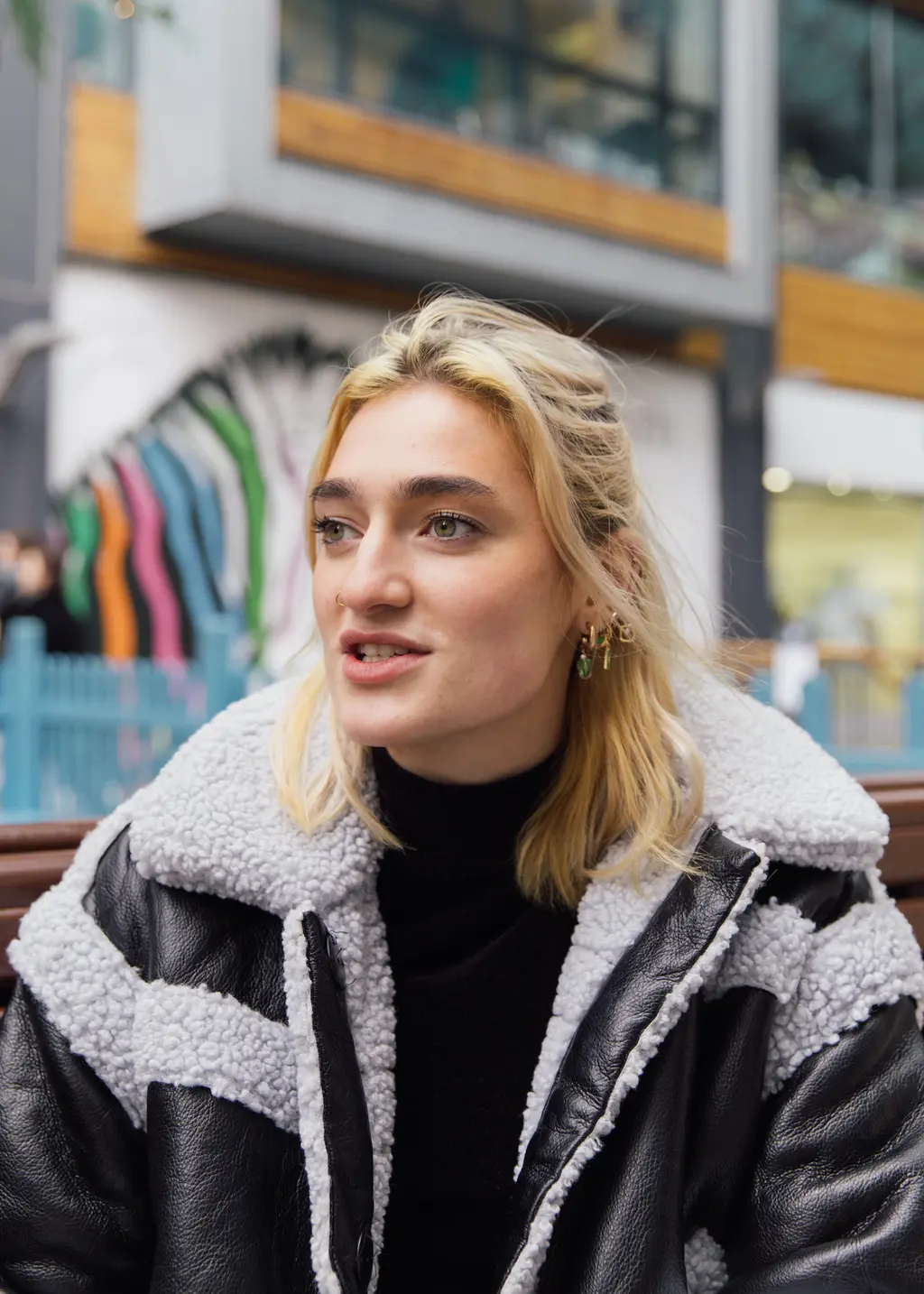

Much of Belfast’s student population lives in the Holylands, a notorious area behind Queen’s University, dubbed so because of its network of thoroughfares with names like Jerusalem, Palestine and Damascus Street. An estimated 7,000 students live in just one square kilometre. Media attention on the area over the years has highlighted anti-social behaviour, poor housing conditions and overcrowding courtesy of ruthless landlords. St Patrick’s’ Day celebrations on 17th March annually bring similar anticipation. In March last year, with the UK still under lockdown restrictions, police issued several fines to people having Paddy’s Day parties in breach of Covid regulations.
Nonetheless, Connolly has faith in her generation.
“I do think young people understand the importance and limits of personal responsibility more now than other generations, like we do with climate change. We know there’s only so much you can do with metal straws, but it’s the billionaires pumping oil we have to address.”
I catch Aoife, 20, with her sister Rachel, 22 in the scrum outside Starbucks, where the queue for coffee converges with a stall run by anti-abortion organisation Precious Life. We exchange eye-rolls as the group pressure passers-by for petition signatures. The sisters are on their way to get each other’s birth flowers tattooed.
“I’m getting Aoife’s, which is a daffodil – a narcissus for a narcissist, naturally,” Rachel says, elbowing her sister slyly. A soon-to-be student nurse come September – who until then describes herself as “unemployed as fuck” – Aoife sees today’s tattoo session as a much-needed bonding moment after the sisters were forced to spend the pandemic apart, despite both being based in Northern Ireland. “These last two years have been shite. I went to see Rachel twice in her horrible student house on Dunluce Avenue and it was hateful.”
“We bubbled with another house in the pandemic and drank like fuck,” adds Rachel. “I drank so much Dark Fruits, I was pissing it out! I blew my student loan on Dark Fruits and fags. But see when everything opened up? That’s when I panicked. I was sat on my hole for eight months.”
Their entire family identifies as high-risk or vulnerable due to various health conditions. Rachel has unstable asthma and developed a chronic pain condition over Covid, meaning she was homebound from October 2020 until recently. Even then, nothing is the same as it was.
“Even now, I go to work, go home. I’m not the same person. I was a fucking moonbeam before Covid. I was a partier: Limelight Mondays, Thompsons Funkarama on Wednesdays, anywhere on the weekend. Yeah, I’ll always be a moonbeam, but it’s changed how I see the world. I have a fear I don’t know I’ll ever shake.”





Finding a chronic pain community on Instagram has been both a comfort and a wake-up call.
“Disabled and vulnerable people are being left behind,” Rachel says. “It breaks my heart. I know people two years in [who are] too afraid to leave the house. And accessing hospital appointments in Belfast is a nightmare. I’m under three departments, but have I seen any of them? Fuck no. It’s normal for the few, not the many.”
As it is on the micro, individual level, so it is on the macro, generational one, too. Young people have been hit disproportionately by what health experts are calling a “second pandemic”, a wave of mental health issues across anxiety, depression, psychosis and eating disorders. Decades of underinvestment in mental health care and a rising demand for services compounded a crisis amplified by Covid cutting physical contact and accessibility.
Equally, a growing gulf between boys’ and girls’ mental health looks to be one of the long-lasting effects of the pandemic. Girls are now 33 per cent more likely to experience poor mental health than girls the same age as them pre-pandemic, while boys are 12 per cent more likely to do so. And Northern Ireland’s youth are bearing a significantly bigger brunt. Of all young people in Northern Ireland, 12.6 per cent experience common mood disorders such as anxiety and depression. That’s around 25 per cent higher than other UK nations.
“I live at home with my mum and [my] four-year-old twins. I lost out on my young years,” says Aoife. “I turned 18 when Covid kicked off and I’ve never been to a club! But I have health anxiety too and everyone around me is vulnerable. The idea of a club…” She shakes her head. “I don’t know yet.”
Rachel cuts in. “I’m going to Thompsons and that’ll be my first time in a nightclub in forever. I won’t give a fuck – I’ll be shaking my ass. I’ll be a pensioner at 22 and I won’t care!”
Partying – or the lack thereof – punctuates all the conversations I have throughout the day with a range of young people. But Belfast’s night time economy is underfunded and under threat.
Non-profit organisation Free The Night NI is fighting to change restrictive local licensing laws, which are some of the most archaic in Europe. The government has been reviewing the entertainment licensing laws since 1996 yet, in that time, opening times have been reduced and more restrictions on venues have been put in place, with little reasoning. Any progress, like removing Easter period serving restrictions in 2021, has been described as modest. The group continues to call for a full Covid recovery plan to support night time economy workers, and protections for existing venues and nightclubs as places of cultural significance, as have been instituted in Amsterdam and Berlin.

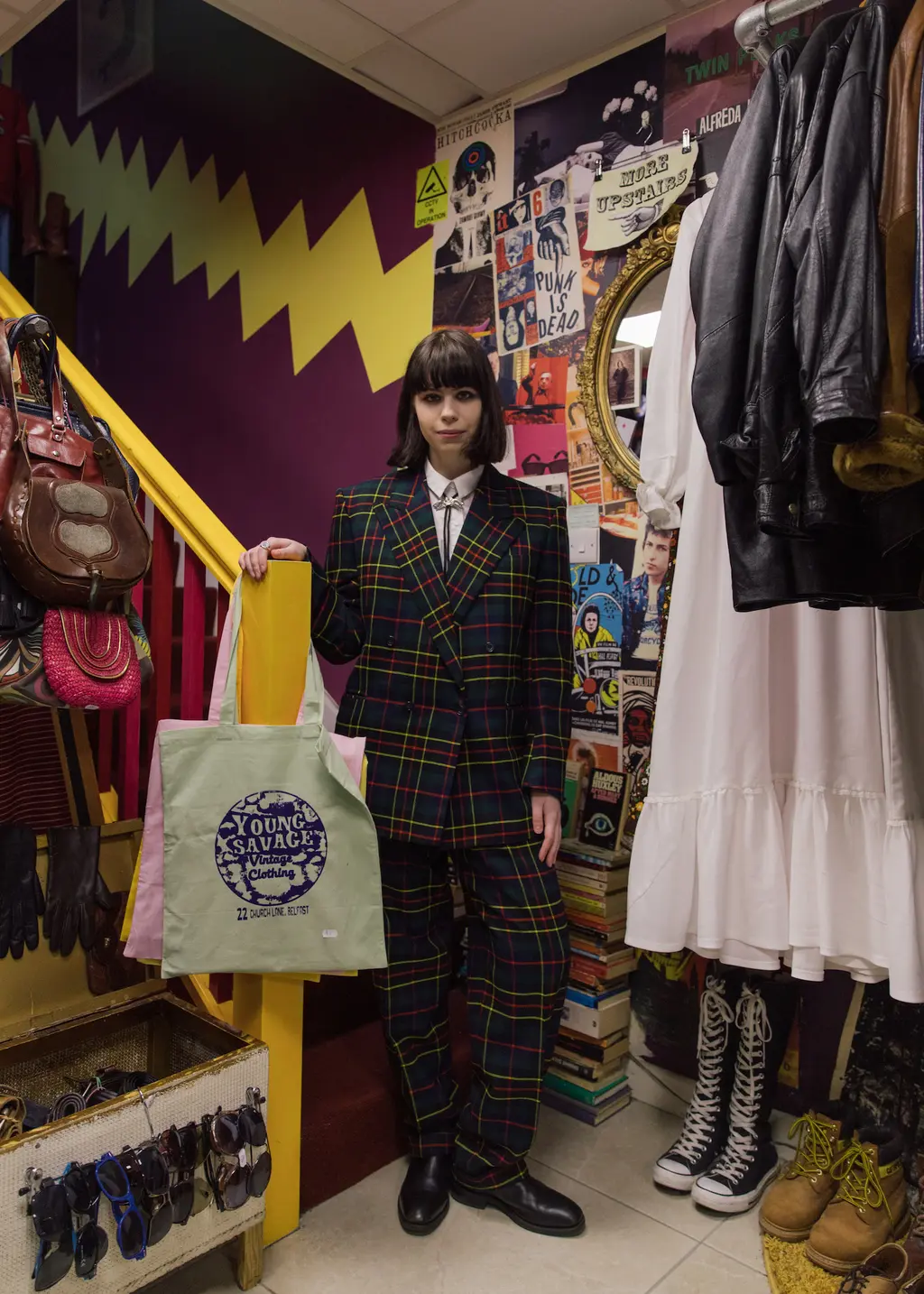
Northern Ireland’s Stormont government will face an election on 5th May. And as has been the case for, well, forever, political frustration and disillusionment among young people are high.
“Once again, like every other issue here, it’s become a divided question,” says Rachel. “I’m doing my deeply divided societies module on my politics BA at the minute and I get it… But it is exhausting. The layers of tribalism slow everything down here.” Still, she nonetheless credits her own education with encouraging her to want to try to change things for the young people coming behind. “I want to teach A‑level politics at Belfast Met, because they really inspired me.”
Indeed, a wave of grassroots groups across the country are galvanised by their youth contingent, from pro-choice to Palestine solidarity and climate action movements.
“I wanted to be a mental health nurse my whole life. Then I got pregnant at 15,” says Aoife. “I had such a good experience with the Daisy Hill [Hospital, Newry] nurses. I was mentally ill and so young. Social services would have got me, but the nurses fought my corner. School-age mums need support here. I want to do that.”
With the hangover of lockdown movement and travel restrictions fading, the sisters are tentatively exploring the new-old world. “I’m just happy I don’t have to get the stinkin’ Goldliner bus to Banbridge anymore to see my bestie here,” says Rachel, gesturing to her sister.
Dipping into local vintage and record store Young Savage, rockabilly blasts on the record player. I get talking to shop assistant Robyn Dilworth. The Belfast-born 23-year-old is in charge of the music selection and striking in a tartan ’80s Mr Eddie suit and bolo tie. She’s worked here since she was 16.
“I haven’t struggled as much as other people have,” she admits. “I was lucky with work. And I’m pretty shy, not that social, so I got to sit at home and dig around eBay for clothes. I’ve probably leaned into being a recluse, but it means solidifying a lot of my interests. I’ve worked on art, and it’s been good to revisit classics and discover new things. I’m rereading Oscar Wilde’s The Picture of Dorian Grey.”
Dilworth is particularly proud of her last lockdown purchase: a t‑shirt from Malcolm McLaren and Vivienne Westwood’s ’70s London concept store Let It Rock, which she found on Vinted.
Punk, of course, still permeates the region. This remains Alternative Ulster, home of Stiff Little Fingers, The Undertones and Terri Hooley’s Good Vibrations, where the counterculture movement brought youth from two polarised communities together. Around the corner sits Fresh Garbage, the 50-year-old alternative store that’s dressed the city’s punks and goth kids for generations.
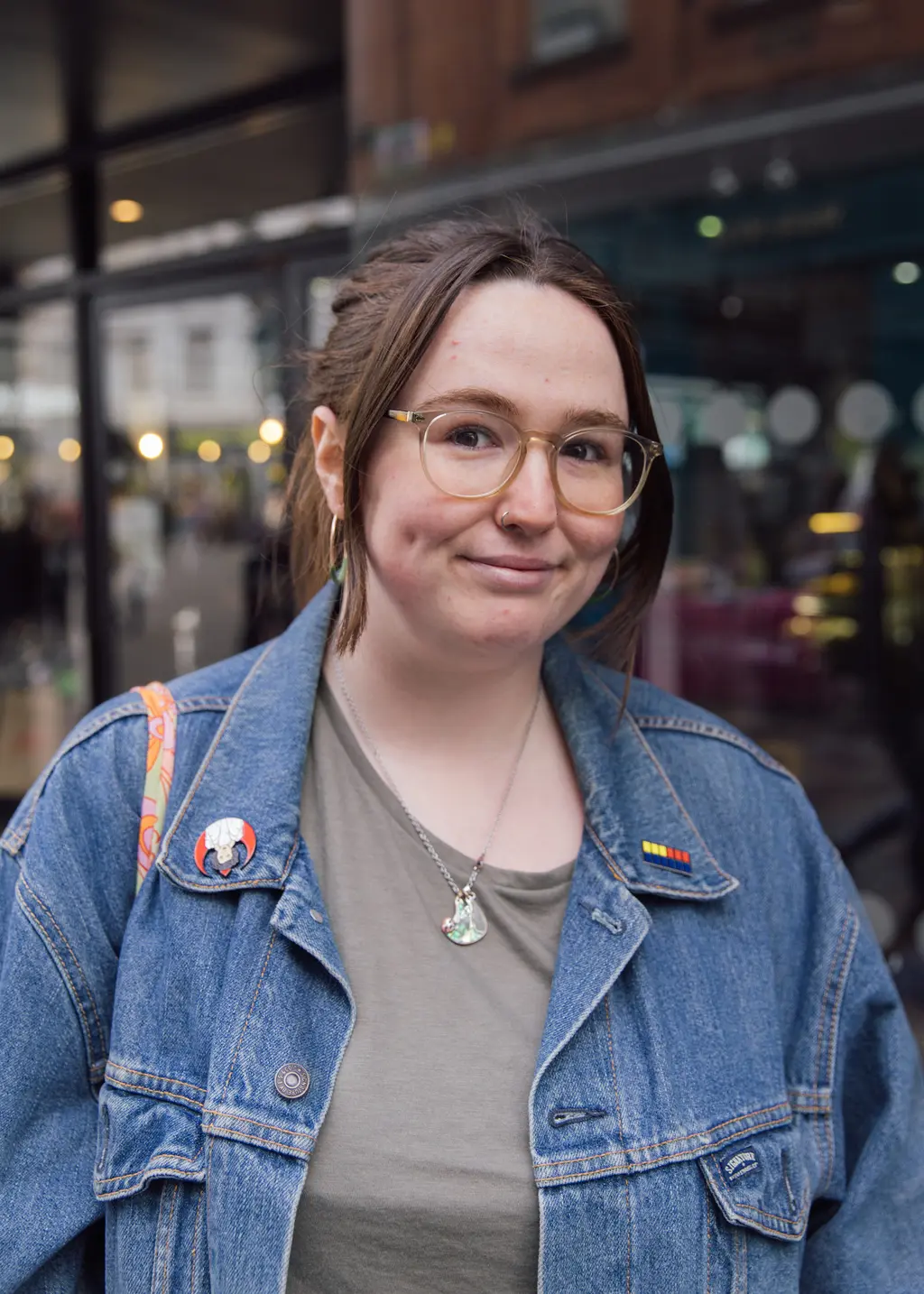
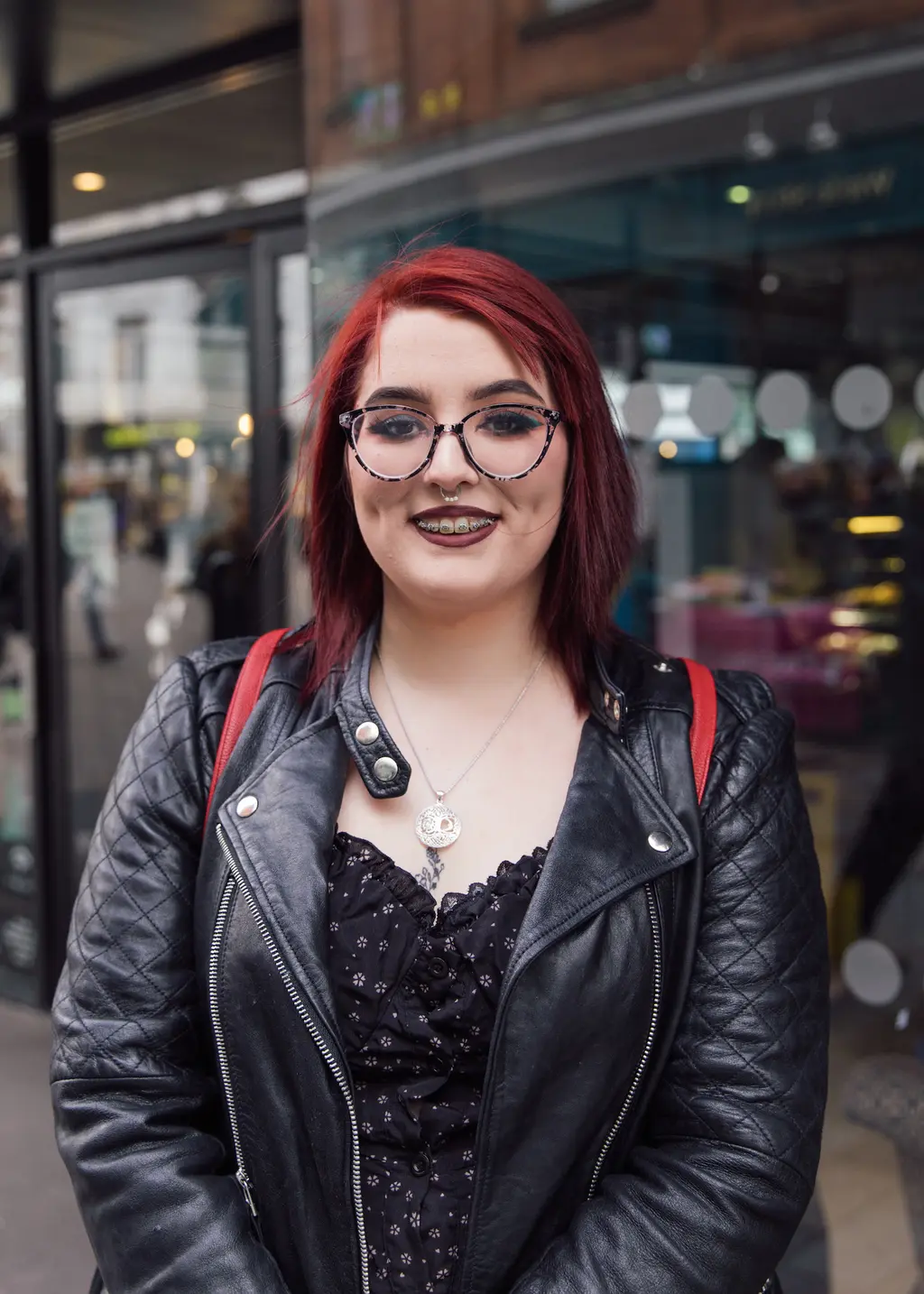
I meet 18-year-old A‑level students Molly Millar and Emma Bogue in another vintage bolthole on Lombard Street, hunting through Belfast’s shops after travelling up from Fermanagh. They tell me about their love of local band Dea Matrona, a rock duo with a name inspired by Celtic mythology who make ’70s rock-inspired, Fleetwood Mac-esque music. They love their sound and style, and after a Covid cancelled gig last year, they hope to catch the band on their Irish tour.
Like Dilworth, Bogue acknowledges some lockdown positives. “When we were stuck at home, I really took the time to think about my style, people, genres and celebrities to draw [inspiration] from. I love to shop vintage. I like neutral colours, but I won’t be wearing tracksuit bottoms ever again!” she says with a laugh.
They pair are now going for Millar’s first tattoo, inspired by a Pinterest board find, while Bogue is getting her second, a sprig of lavender.
They’ve been together as a couple for almost a year now. “We met at a party in between the lockdowns,” explains Millar. “I hope we both get to finish our A‑levels and go to London together.”
Passing the boarded up Topshop on Victoria Square, a tattoo shop and a queued-out LUSH, feminist activist group ROSA is handing out leaflets and talking to people about a trade union campaign against the harassment of women working in the hospitality industry. Eva Martin approaches from behind the stall. Aside from her activism, she’s doing her masters in government transformation.
“I have a post-Covid psyche,” she begins. “It’s terrifying to speak to people, but I’m getting over that, of course, for the cause today!
“I became a lot more aware of social issues in that pandemic downtime,” the 22-year-old continues “It was, for me and a lot of my friends, conscious-raising. I really questioned why the pandemic happened, why the climate crisis is as it is. I felt a lot of despair. But that changed when I really got into feminist activism that directly addresses the problems of capitalism. And I found solidarity with like-minded people, first online and then in real life.”
In 2022, Northern Ireland is finally catching up on policy to safeguard and uplift women, like a violence against women and girls strategy – it’s the only region in the UK without one. Still, long-awaited abortion services are yet to be fully commissioned.
Across lockdown, Martin read radical works from Angela Davis to Karl Marx, then joined the dots to today’s burning issues.
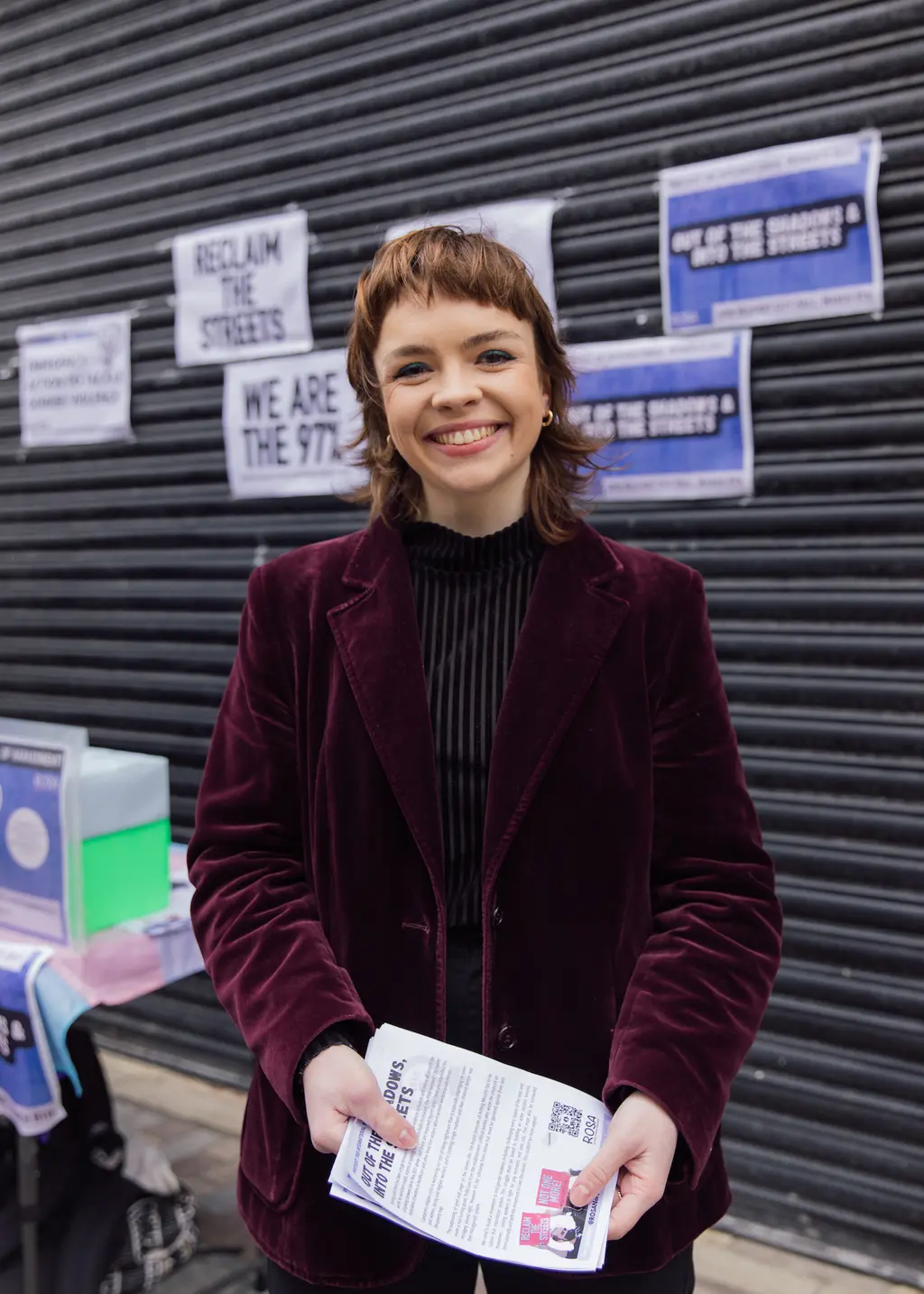
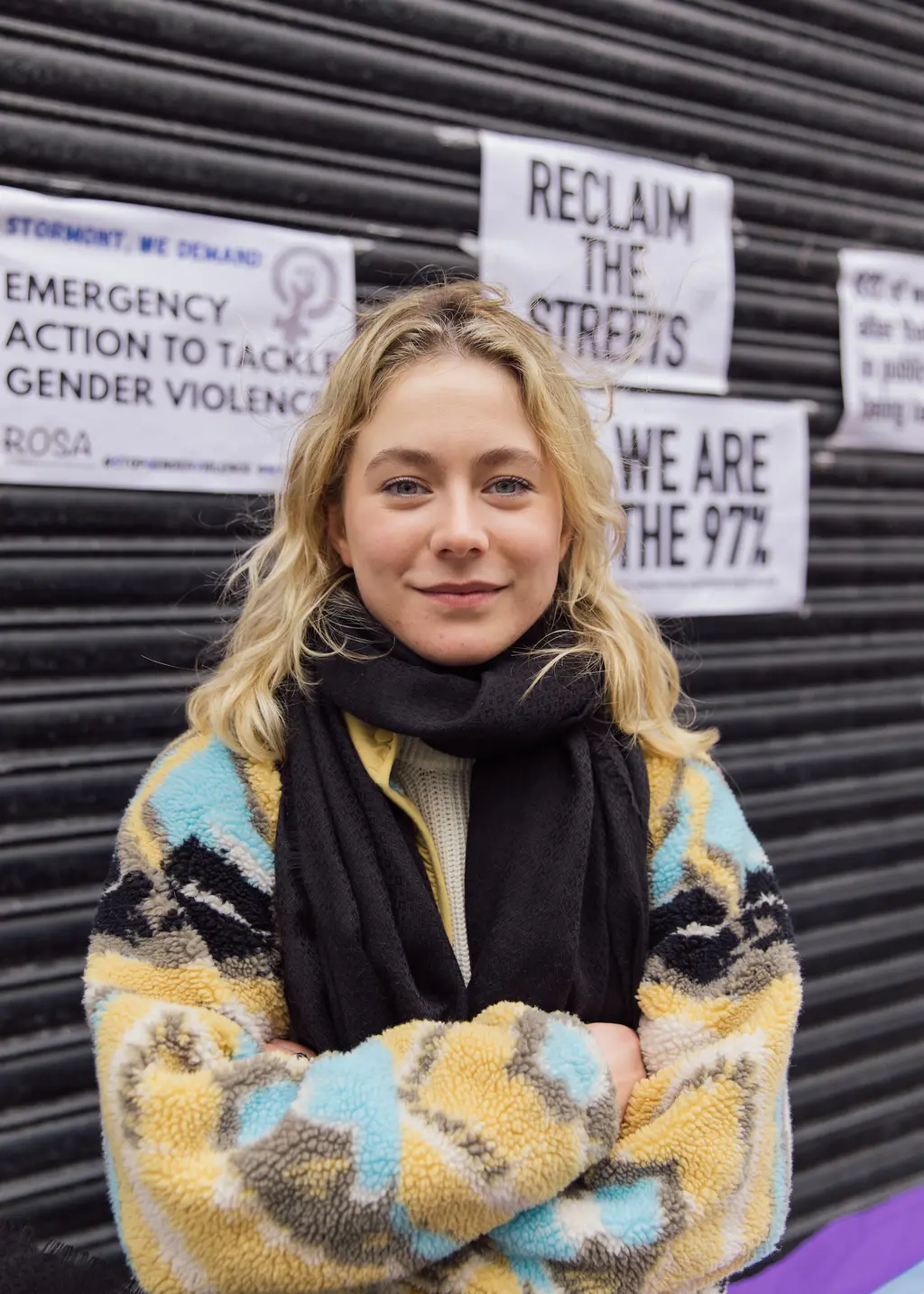
“You look around and the narrative we’re told by the elite doesn’t add up to reality,” she adds. If anything, two years on pause have reinvigorated her determination to regain some lost independence. “I’ve been in foster care. I was with my first family and then my second for the majority of lockdown. It was stressful. Now I want to be positive and hopeful – despite the feeling we’re entering another world war.”
Again, too, politics in Northern Ireland and its on-the-ground impact on young people, are inescapable. But there’s a young, fiery wave of progressive politicians vying for representation across the parties. East Belfast’s Ulster Unionist Party candidate Lauren Kerr wishes to be a unionist voice for women and LGBTQ+ people. Social Democratic and Labour Party East Derry rep Cara Hunter has been a fervent voice for Irish Unity, for the pro-choice movement, and against conversion therapy. People Before Profit councillor Fiona Ferguson has been a dedicated supporter of working class women’s issues like the closure of the Regina Coeli House women’s homeless shelter and the recent, first-ever NI Feminism In Schools Conference.
“Could we see that the current system that we live under doesn’t serve working class people?” Martin muses. “We also have an impending election in Northern Ireland,” she says. “Reunification [of the Republic of Ireland and Northern Ireland] is [a possibility] in our lifetime – will we see more violence and division?”
Polling by the Northern Ireland Youth Forum in 2021 showed that 80 per cent of young people surveyed think a poll on the future (or otherwise) of the border is likely in the next 20 years. Just over 40 per cent said they would like to see the reunification of Ireland, while 33 per cent said they would vote to remain in the UK. Of those polled, 21 per cent were unsure, 62 per cent felt politicians here didn’t value their opinions and 47 per cent said they felt NI politics were unchanged.
The mishandling of Brexit and the propulsive riots across Northern Ireland, and the lack of an all-island approach to healthcare in the pandemic, have been touted as accelerants for a major debate on Irish unity. By 2031, it is estimated there will be a massive demographic shift in Northern Ireland, with Catholics at 50 per cent and Protestants at 38 per cent, and a further 12 per cent of neither religion. This suggests an appetite for a united Ireland will grow.
But legislation for integrated education is also gaining momentum, an encouraging move for a shared future in Northern Ireland that can imagine life beyond electoral politics that, in Eva Martin’s words, is “dedicated to the green and orange that doesn’t serve this generation”.
After two years in lockdown, Northern Ireland’s youth are tired of the scapegoating, the cap on their creativity, of political inertia and tribalism.
“Their polarising isn’t for us – we have more shared interests than differences today,” Martin says. “We need to harness that. We need to champion that shared struggle as young people in a world beyond pandemic.”














